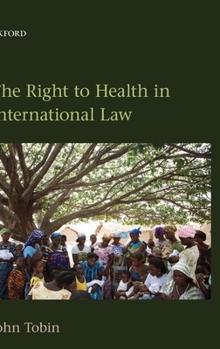The Right to Health in International Law
The link between health and human rights has been recognized for many years, but the increasing visibility of the right to health in international law has been a distinct feature of the last decade. It has been embraced by actors within civil society, academics, health professionals, lawyers and courts in several jurisdictions as a tool to address health inequalities at the local and global level, in matters ranging from access to medicines and the availability of affordable health care to sexual and reproductive health. But it has equally been the subject of derision and scorn by human rights sceptics who have described it as lacking foundation, nebulous, and incapable of implementation. This book seeks to offer a comprehensive discussion of the status and meaning of the right to health in international law. It traces the history of this right to reveal its nexus with public health and the long-standing recognition that a State has a responsibility to attend to the health needs of its population. It also offers a theoretical account of its conceptual foundations which challenges the position held by many philosophers that health is undeserving of the status of a human right. By developing an interpretative methodology, the book provides a persuasive account of the meaning of the right to health and the obligations it imposes on States. This process reveals an understanding of the right to health that, while challenging, remains practical and capable of guiding States that are genuinely committed to addressing the health needs of their population.
Format:Hardcover
Language:English
ISBN:0199603294
ISBN13:9780199603299
Release Date:March 2012
Publisher:Oxford University Press, USA
Length:442 Pages
Weight:1.80 lbs.
Dimensions:1.1" x 6.2" x 9.4"
Customer Reviews
0 rating





